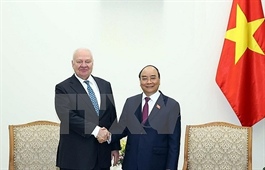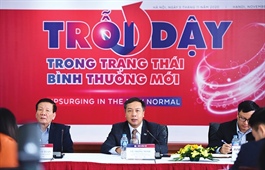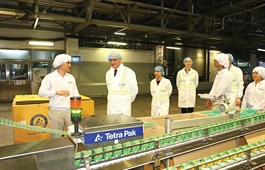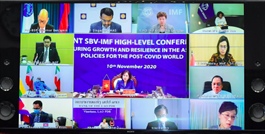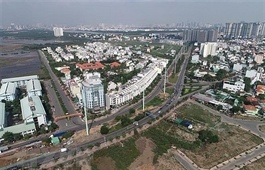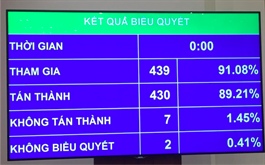New decree to prevent transfer pricing, limit thin capitalisation
New decree to prevent transfer pricing, limit thin capitalisation
The Government’s recently-issued Decree 132/2020/ND-CP would help prevent transfer pricing and limit thin capitalisation to develop a healthy investment market, Deputy Director of the General Department of Taxation Dang Noc Minh said.

Minh spoke at a press conference on Monday to introduce new points of the decree dated November 5 about tax management for enterprises with related-party transactions, saying the interest expense deduction limit was raised from 20 per cent to 30 per cent – the highest ratio recommended by the Organisation for Economic Cooperation and Development.
Increasing the cap to 30 per cent would help enterprises have more capital for investment in the context that most firms in Viet Nam were thinly-capitalised with the level of debt much greater than equity capital, he said.
Minh said that the Decree 132 did not differentiate foreign-invested companies and domestic companies in fighting transfer pricing to ensure fairness and transparency.
“This regulation does not mean to cause more difficulties for enterprises because any companies, foreign-invested or domestic, could use the transfer pricing method.”
The Ministry of Finance’s statistics showed that there were about 16,500 enterprises with related-party relations, 8,000 of which had related-party transactions and 70 per cent were foreign-invested.
According to Nguyen Thu Huong from international non-governmental organisation Oxfam in Viet Nam, it was necessary to terminate corporate income tax (CIT) incentives and reductions to minimise transfer pricing.
The preferential value was estimated at about seven per cent of the total CIT revenue annually, a considerable sum, Huong said. However, she pointed that there was an unfairness because the preferential tax mostly applied to FDI companies.
Preferential CIT policies to encourage investment led to a race to the bottom among localities in the country and among countries in the region, which was not only causing losses to budget revenue but also creating loopholes for transfer pricing, Huong said.
Deputy Director of the finance ministry’s Department of State Budget Nguyen Minh Tan said that transfer pricing often occurred when there were tax incentives.
However, tax incentives were an important factor to attract foreign investment in the context of a global production shift triggered by the COVID-19 pandemic, Tan said.
Viet Nam was regarded as an attractive destination for investment but not the only choice, Tan said, adding that it was necessary at the same time to offer tax incentives to attract investment and to fight transfer pricing.
Decree 132 implemented regulations which were appropriate to international practices and the condition of Viet Nam to enhance the prevention against transfer pricing, Tan stressed.
The tax watchdog inspected 263 enterprises with related-party transactions in the first 10 months of this year, collecting more than VND525 billion (US$22.6 million) in fines and arrears, reducing losses by more than VND9 trillion and increasing taxable income by VND4.19 trillion.
Last year, 597 enterprises with related party transactions were inspected to collect VND1.1 trillion in fines, reducing losses by VND5.8 trillion and increasing taxable income by VND5.9 trillion.








